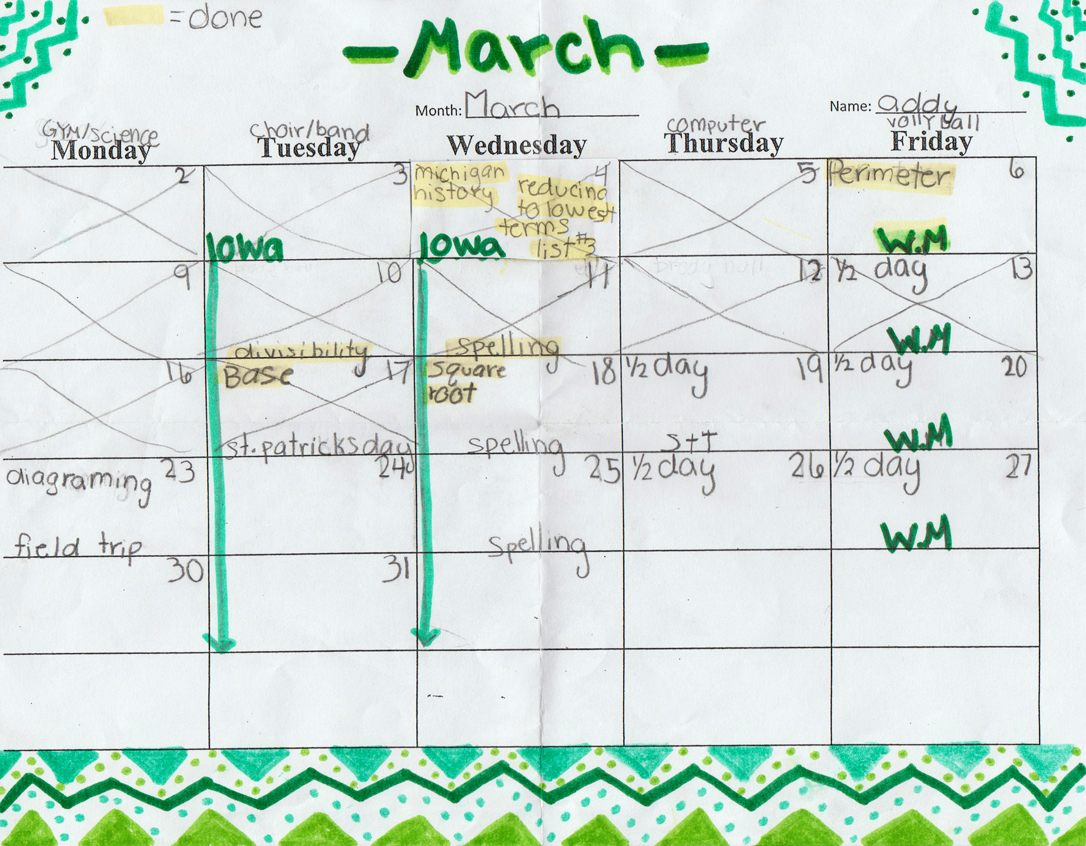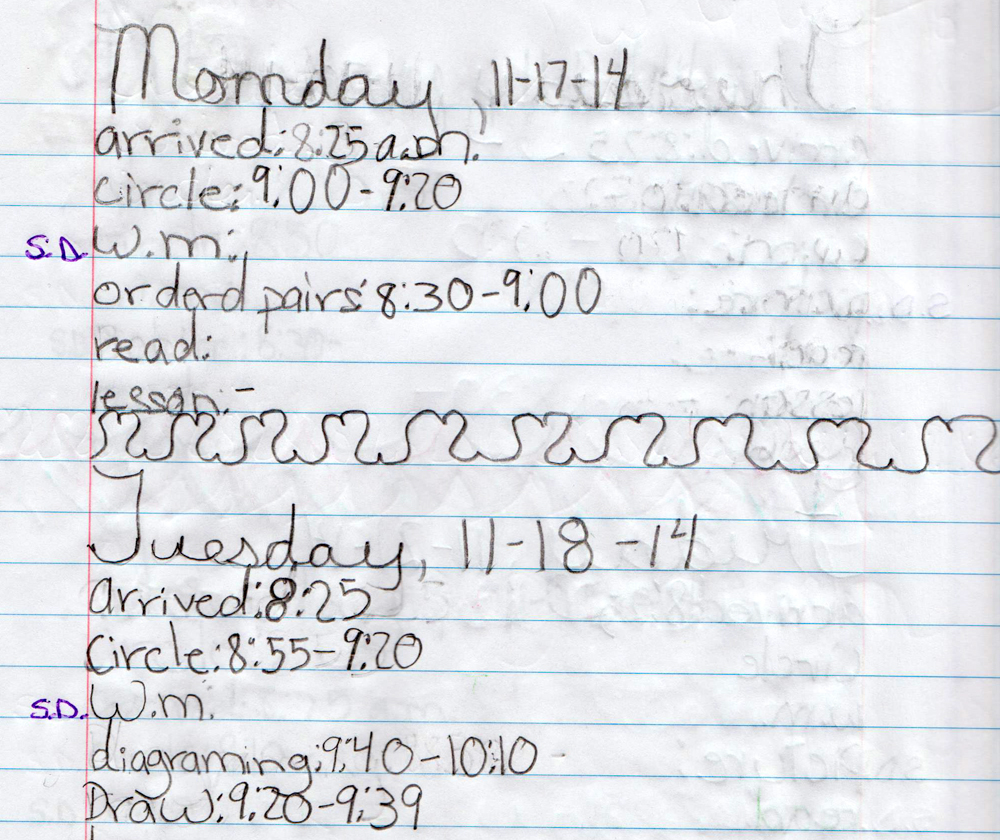Lower Elementary
6-9 year olds (1st-3rd grade)
Sparking imaginative thinking and independent problem solving
At this age children shift from asking ‘why’ to asking ‘how.’ Teachers guide them in collecting information to come up with their own answers. Standard academics (math, language, science) are interjected with comprehensive lessons on topics that include the formation of the universe and timelines of life on earth. These Great Lessons inspire contemplation about how the world fits together, its past and present, and our place in it.
- Materials move from concrete to abstract concepts.
- Focus is on developing independence: children plan their mornings, choose their work & workspace, and meet due dates.
- The goal is to foster intrinsic motivation and curiosity.
- Morning are spent in individual or group work, and one-on-one or small group lessons with the teacher. Afternoons are for silent reading, writing, and learning with Specialists.
Upper Elementary
9-12 year olds (4th-6th grade)
Freedom with Responsibility and Leadership in the school community
Students make their own calendars to prioritize work and keep track of due dates. They balance their time between completing lessons, doing art projects, practicing for upcoming presentations, or volunteering for community service around the school – watering plants, vacuuming, or helping other children.
- Bridging the gap between concrete and abstract learning
- Practicing leadership - mentoring younger children
- Developing organizational and time management skills
- Preparing for transition to middle school with text books, homework, and standardized testing (IOWAs)
Passage to middle school
Scores on the IOWA test display academic readiness. Feedback from parents and students demonstrate emotional and social readiness. Listen to Sharon's (upper elementary teacher) story below about how a former student dealt with bullying.






